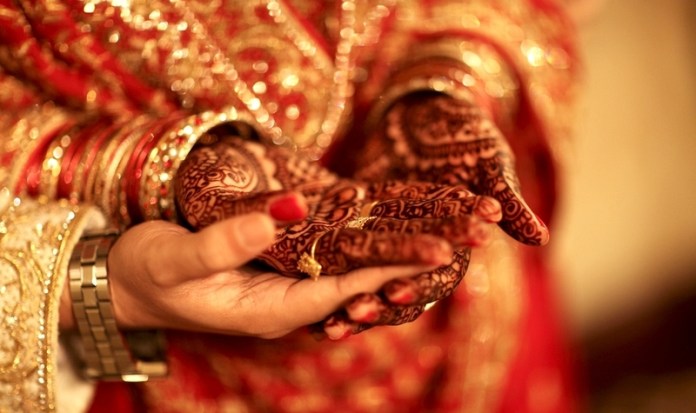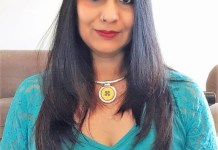Did God define marriage or did Man create it? Is it just a social institution or a human necessity? The debate around who can define marriage has never been fiercer than it is today. While the western world debates the legality of same-sex marriage, traditional societies like India still base their marriage decisions on Manglik Dosha matching and compatibility scores. Let’s explore these topics and unravel some truths.
Estimates suggest that the English language today has more than a million words and is growing at the rate of 4000 new words per year. While new words can be added to the dictionary depending on how widely they are used, existing words are also known to change meaning over time, although that happens less frequently. It is even more unlikely for a word that denotes a social institution and whose definition is so ingrained in the human psyche that it is considered to be invented by God. The eight letter word ‘Marriage is one such word that is currently in the midst of such an upheaval.

Image Source: msn.com
Marriage is derived from Middle English mariage, which first appears in 1250-1300 AD. This, in turn, is derived from Old French marier (to marry) and ultimately Latin marre meaning to provide with a husband or wife. Herein lies the gist of the traditional definition of this word:
The state of being united as spouses in a consensual and contractual relationship recognized by law – As per Merriam Webster
The history of marriage and knowledge of the first married couple is unknown, however, whosoever coined the term definitely did not envisage the notion of same-sex marriage in the future. Same-sex marriage is legal in only 27 countries as of June 2018.
Groups who don’t support marriage equality largely have belief systems rooted in religion which carry the original definition of marriage. In an essay published by the Daily Herald titled “God defined marriage as a man-woman arrangement, Greg and Kate Soter, grandparents of 17 kids and parents of six children including a gay daughter and son say:
“In our belief, marriage was initiated by and continues to have God at its center. He gave it; he gets to define it. And when you look to the deity-based sources of information, it’s pretty clearly a man/woman arrangement. Intelligent observation of the world’s societies seems to verify that marriages between a man and a woman, rooted in religious beliefs, are the most likely way to greatest happiness.”
The last statement by Mr. and Mrs. Soter is striking, particularly if you hail from North India and have been exposed to various convoluted theories from Hindu Marriage Astrology such as Manglik Dosha, Kal Sarp Yoga, and Guna Milap. If Greg and Kate’s notion was indeed true then principles of Hindu Marriage Astrology would have been adopted globally, leading to the happy and peaceful world. To understand why this would have been the case we first need to understand how Marriages in Hinduism work.
Whether it be arranged marriages (still very dominant in Indian society) or love marriages, parents exercise a tremendous amount of control in determining the right match for an individual in India. The “right match” is influenced by family considerations as well as the personal preferences of the person seeking to get married. Family considerations, however, trumps everything else and often leads to nasty disputes, eloping and even death. These factors which have their roots in the Hindu caste system comprise of aspects like Religion, caste, culture, profession, status, physical appearance, and horoscope. The last consideration is perhaps the most significant, least understood and most exploited by men of religion. Its motive, however, is to achieve what every couple desires, “to live happily ever after“.
To determine if the male and female who seek to get betrothed to each other will have a healthy marriage, parents on both sides will initiate a process known as Kundali Matching. The end goal of this exercise is to determine the compatibility score and understand the possible areas of dispute that may arise from the relationship in the future. Attaining a good score is however not enough for the families. It also needs to be ensured that prospective bride and groom share the same Manglik dosha, i.e either both of them have it or neither of them does. Matches, where one partner has Manglik Dosha and the doesn’t, are often not approved or in the case of love marriages, they involve weird remedies, such as getting married to a tree, offering food to monkeys etc. The reason for this is that it is believed that a marriage of a Manglik and non-Manglik will often result in severe disharmony among the spouses and eventually to other bigger problems including the death of either spouse.
Using religion to define any social institution is often fraught with huge risks, as proven by the concept of Sati in India. The prime reason for this is that religion is philosophical, discusses complex ideas and is open to various levels of interpretation. Nothing proves this more than the real truth about Manglik Dosha and its perceived reality.
The concept of Manglik Dosha is derived from Vedic Astrology where each planet, rashi, and nakshatra has a meaning. A person with Manglik Dosha is simply one who has a strong presence of the planet Mars in their birth chart. They are perceived to possess qualities of chivalry, valor, courage, fearlessness, strength, a sense of purpose in life, discipline and a fiery temperament. Mangliks are thus known to emanate strong and powerful vibrations. Based on this principle, logic suggests that only another Manglik will be able to cope better with the strong nature of their partner thus leading to happier married life.
At face value, this explanation seems valid and applicable to arranged marriages where both partners are strangers to each other when they start discussing their union. However, in the case of love marriages where both partners have known each other for a fair amount of time it makes little sense. How can parents not trust the judgment of their own kids to determine something as simple as to whether their partner of choice is capable of coping with their personality? It must also be remembered that the characteristics associated with Manglik Dosha are only indicative. Today, we live in a complex society where generalizations are not possible and everything to a large extent depends on the environment that one grows up in.
Coming back to the original discussion of defining marriage, it seems unlikely that marriage is an institution created by God. If that were the case, then human beings would not be the only species to participate in the same. In fact if God had created marriage, then polygamy would have been legal (as Lord Krishna had 16,000 wives), polyandry would have been legal (as Draupadi had five husbands) and marriage would have had one consistent form throughout the ages across cultures. As for the question of cracking the recipe for a successful marriage, that is nothing but an exercise in futility as success itself is 99 percent failure.
What are your thoughts on marriage and legalizing same-sex marriage? Have you experienced the idiosyncrasies of Manglik Dosha and Hindu marriage astrology? Leave Your comments.
Featured Image Source: viewstorm.com





[…] There is no shame in acknowledging her worth and purity without such moronic customs, and no respect or goodwill in bowing before other’s assessment of your upbringing [11]. […]